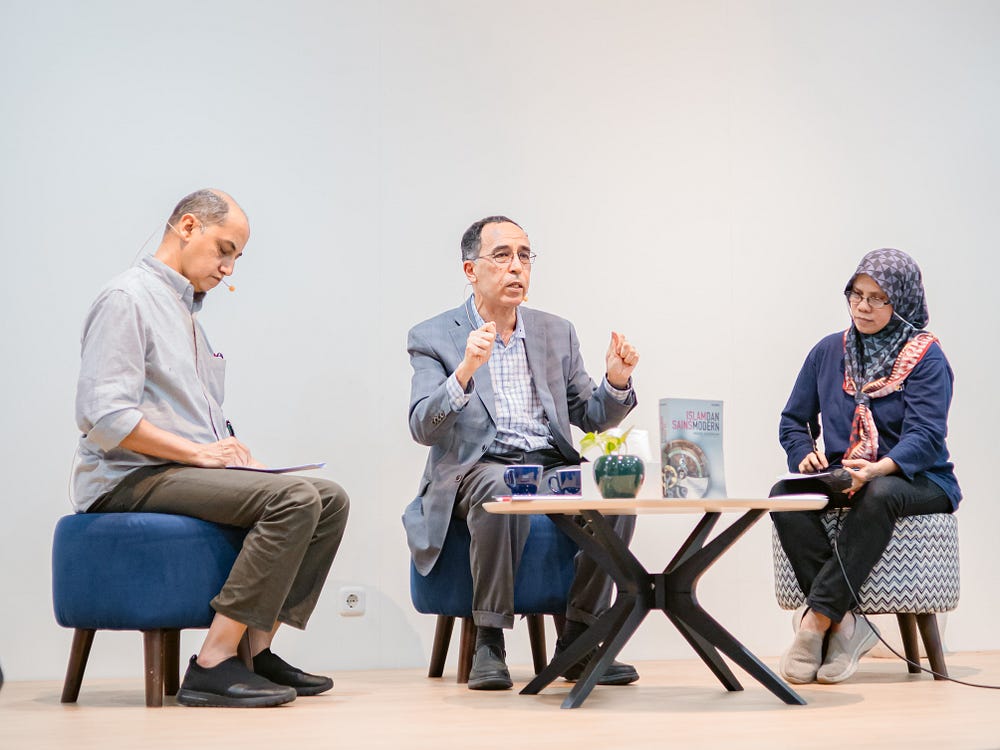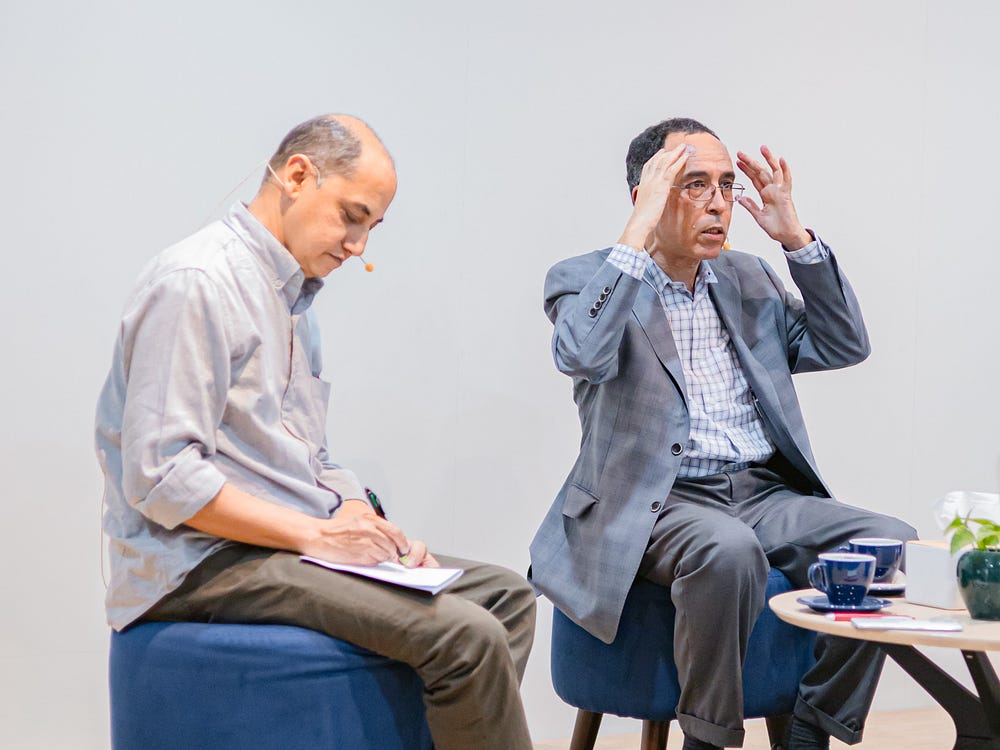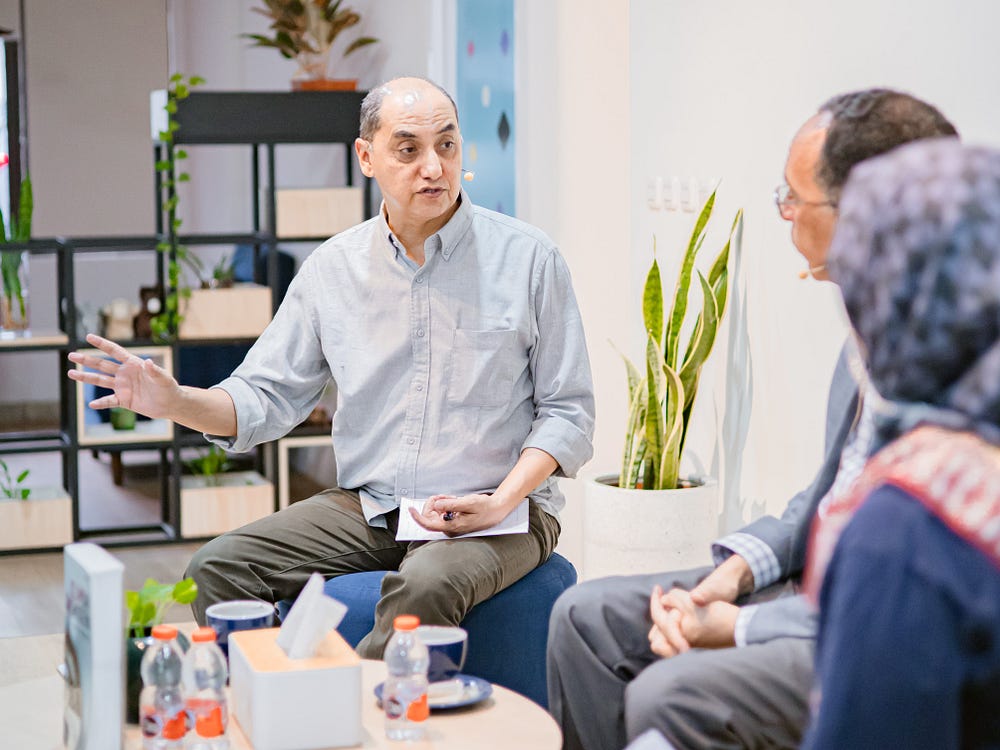Navigating the Cosmos: Exploring the Harmony Between Islam and Science

In a captivating book discussion, Prof Nidhal Guessoum, PhD, and Dr Zainal Abidin Bagir delved into the intricate relationship between science and Islam. The conversation, sparked by Guessoum’s scientific background and a deep curiosity about the intersection of science and religion, unfolded as a journey through history, philosophy, and the challenges of harmonizing these seemingly disparate realms.
Guessoum, sharing his experiences growing up in a moderately religious family, emphasized the importance of understanding Islam in a nuanced way. He highlighted that his book, an Indonesian translation published by Mizan — the first in the entire Muslim World even before the Arabic translation — aimed to bridge the gap between the scientific and the Muslim communities.
The discussion touched upon the linguistic richness of their upbringing, where proficiency in multiple languages was cultivated. They emphasized that scientific topics are inherently linked to culture and society, shedding light on the challenges of reconciling Islam with certain scientific concepts, such as the Islamic calendar.

One key aspect the speakers underlined was the need for a correct and rigorous understanding of Islam to foster harmony with modern science. They acknowledged the complex nature of defining Islam and stressed the importance of philosophy and the history of science in this pursuit.
Interestingly, they pointed out that discussions on the relationship between science and Islam were often conducted by non-Muslim scientists or non-scientist Muslims. This highlighted a gap that these scholars aimed to fill, providing an authentic Muslim perspective on the matter.
The conversation delved into the historical context of Muslim responses to science and technology during the 18th and 19th centuries when the Muslim world faced colonization by Western powers. The speakers highlighted the diverse reactions, from outright rejection to uncritical embrace, and the struggle of Muslim reformers to find a balance between tradition and progress.
A critical point of contention was the term “Islamic science” or the Islamization of science, with the speakers cautioning against its misuse. They argued that misinterpretation and misapplication of science in the context of Islam can lead to the destruction of fundamental principles of education, such as critical inquiry and independent thinking.
The discussion extended to the challenging topic of reconciling human evolution with Islam. Guessoum argued for a nuanced approach, emphasizing the compatibility of the fossil record with evolution and interpreting the Quranic creation story in a way that aligns with scientific findings. He says that we can accept the scientific evidence for evolution while still maintaining our faith in Islam.
The debate over evolution was presented as not a cause of atheism but rather an alternative explanation that shouldn’t threaten religious beliefs. The speakers urged individuals to consider alternative perspectives that reconcile evolution and Islam instead of rejecting one in favor of the other.

They also delved into the broader interaction between science and religion. Dr. Guessoum proposed that science could offer new insights into religious conceptions, enriching our understanding of both fields. Dr. Bagir cautioned against the dominance of scientific epistemology, emphasizing the importance of balance between modernity and tradition.
Guessoum suggested that a harmonious interpretation of religious concepts using scientific knowledge is possible and even encouraged. He stressed the importance of a well-rounded education that considers science, literature, and art, fostering a holistic understanding of the world.
The speakers concluded by dispelling the myth of an inherent conflict between Islam and science. They highlighted the historical contributions of Muslims to various scientific fields, urging fellow Muslims to embrace modern science and recognize its role in advancing human knowledge.
In a world where science and religion are often portrayed as conflicting forces, this enlightening discussion presents a refreshing perspective. It invites readers to explore the rich tapestry of Islam and science, encouraging a nuanced understanding that transcends simplistic narratives. The speakers advocate for an open-minded approach, emphasizing the compatibility and potential synergy between these two realms of human understanding.



Komentar
Posting Komentar